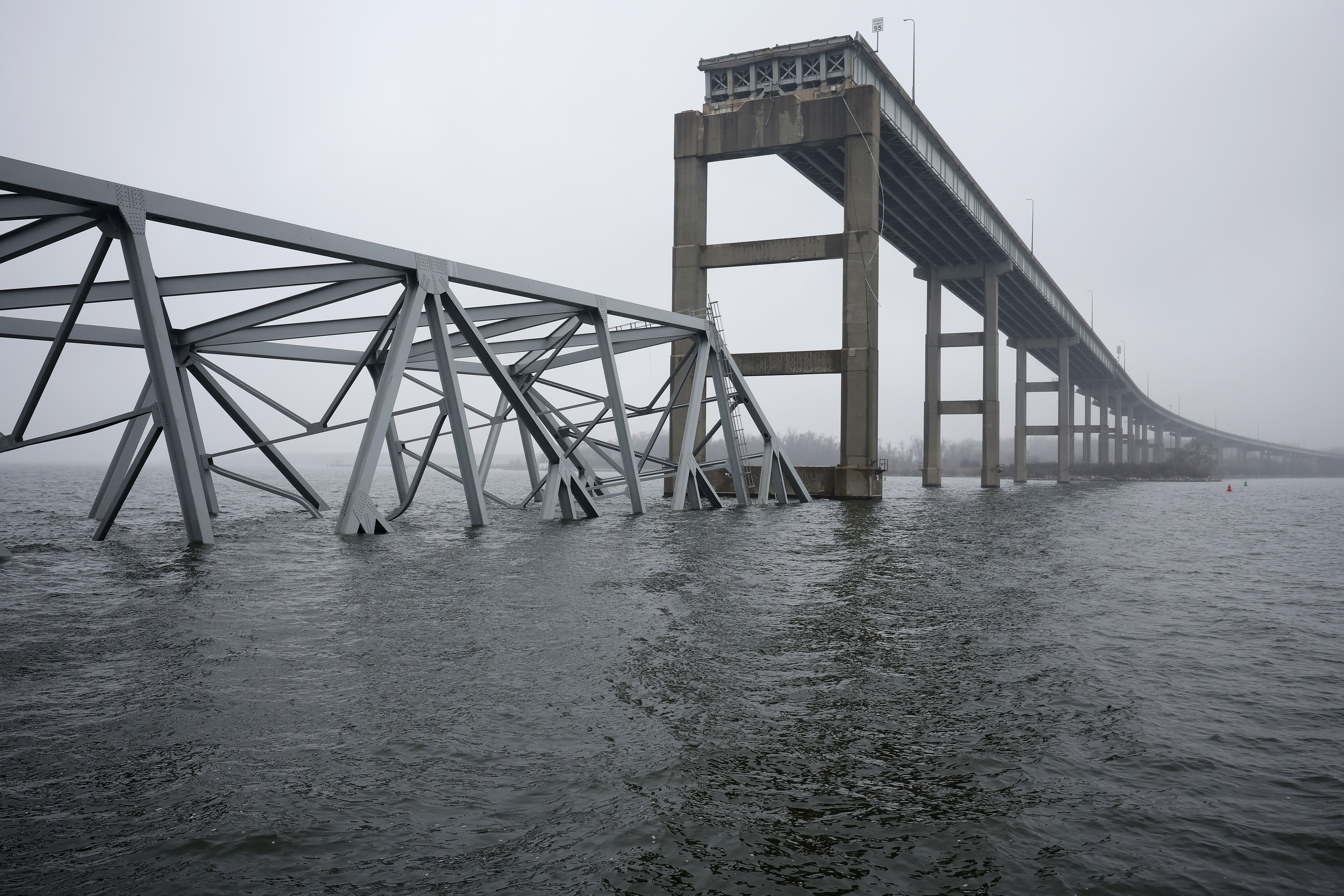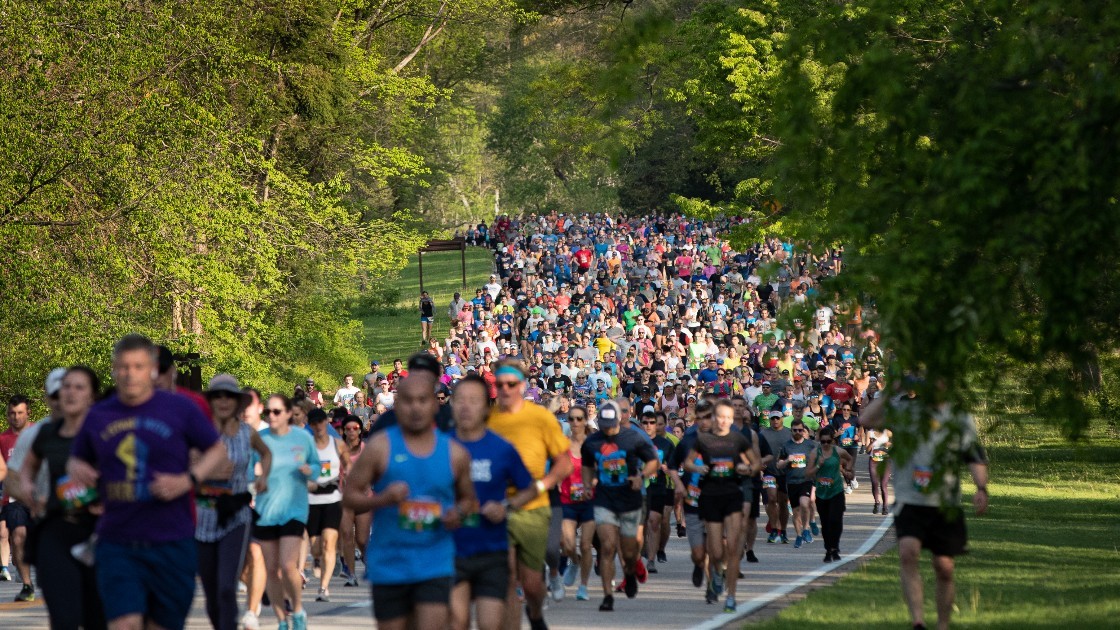Protesters who took refuge in a stranger's home after a confrontation with police streamed onto the streets of Northwest Washington, D.C., minutes after a curfew was lifted early Tuesday as primary election day arrived.
Monday brought the fourth night of anti-police brutality and anti-racism demonstrations fueled by outrage over the death of George Floyd in Minneapolis police custody. More than 300 people were arrested after a curfew went into effect before sunset, D.C. Police Chief Peter Newsham said.
President Donald Trump said he would send "thousands and thousands of heavily armed" forces to the city, but D.C. Mayor Muriel Bowser said no soldiers were seen in the local streets.
Bowser had put the city under a curfew from 7 p.m. Monday to 6 a.m. Tuesday. Another curfew will be in effect from 7 p.m. Tuesday to 6 a.m. Wednesday.
Local officers arrested an unknown number of people for violating the curfew.
Protesters told News4 that officers pursued dozens of people, "corralled" them onto a street and deployed pepper spray. A stranger nearby opened their Swann Street NW home to some of those protesters.
White House Discussed Federalizing D.C.'s Police Force: Mayor's Office
Local
Washington, D.C., Maryland and Virginia local news, events and information
Trump administration officials discussed the possibility of federalizing D.C.'s local police force, D.C. Mayor Muriel Bowser's Chief of Staff John Falcicchio said Tuesday.
News4's Mark Segraves read the 1973 District of Columbia Home Rule Act and discussed the issue with legal scholars. Sec. 740 of the act allows the president to assume control of the local police, with restrictions.
Bowser at a press conference on Tuesday responded to a question about how that clause works, indicating that it's not as simple as the president making a stroke of the pen. She didn't comment further.
"He wanted to show a force in D.C. and we know that they examined a lot of ways to do that," she said Tuesday.
Bowser opposed the move and said D.C. was prepared to fight in court if President Trump moved to assume control. The administration backed off, Falcicchio confirmed.
But the Trump administration is still apparently seeking to show some force in D.C.
Attorney General William Barr issued a press release on Department of Justice letterhead telling people to expect more police.
"There will be even greater law enforcement resources and support in the region tonight. The most basic function of government is to provide security for people to live their lives and exercise their rights, and we will meet that responsibility here in the nation’s capital.”
The letter also expressed gratitude to Police Chief Peter Newsham and the D.C. Police.
“Last night was a more peaceful night in the District of Columbia. Working together, federal and local law enforcement made significant progress in restoring order to the nation’s capital."
More than 300 Arrested for Curfew Violations, Rioting, Burglary: Police Chief
More than 300 people were arrested between Monday night and Tuesday morning in the District, most of them charged with violating curfew, burglary and rioting, D.C. Police Chief Peter Newsham said.
A D.C. police station also was damaged by fire, but Newsham didn't provide further details. One police car was set on fire.
Local police officers swarmed different groups of protesters, arresting dozens or more at a time.
About 20 minutes after curfew took effect, police arrested 54 people near 17th and I streets, about a block from protest hotspot Lafayette Square, Newsham said.
Officers on the 2400 block of 14th Street NW began to see behavior that had previously proceeded violence and window-smashing around 9 p.m. and arrested more people.
The largest bust happened near Swann Street, where 194 people were detained in a "significant arrest," Newsham said.
Dozens of people in that area, however, avoided arrest by taking shelter in homes, News4 reported. Those people were not arrested when they walked out minutes after the curfew ended.
Witnesses near the Swann Street scene had told News4 that officers followed them for several blocks, "corralled" them and deployed pepper spray before making the arrests.
Police also fired munitions to disperse a group of 300 protesters near Judiciary Square later at night.
The fourth night of protests and the second night of curfew brought far more arrests than previous nights. On Saturday, 18 were arrested. On Sunday, about 88 were arrested, Newsham said Tuesday.
Military Doesn't Respond to DC Protests, Despite Trump's Announcement
Federal forces used tear gas and force on largely peaceful protesters to get them away from St. John's Church shortly before curfew started. Trump briefly visited the church, holding the Bible, as photos were taken.
Bowser called that move "shameful," saying federal police used munitions on peaceful protesters without provocation. She said the aggression made it harder for D.C. police to do their job.
“I didn’t see any provocation that would warrant the deployment of munitions, especially for the purpose of moving the president," she said at a news conference Tuesday morning.
Trump's claim that "thousands and thousands of heavily armed" military and law enforcement would be sent to protect D.C as the curfew began did not materialize, Bowser said.
“We haven’t seen any military, active-duty military, in the District overnight,” she said on MSNBC Tuesday morning.
“Bringing in the active-duty military against Americans for any reason is inappropriate,” Bowser added.
Trump urged the nation's governors to "dominate" their cities and states and claimed Monday night that the District was going to see strong action.
"We're doing it in Washington. In D.C., you're going to see something people haven't seen before," he told governors and mayors on a call Monday, according to a recording released by the Washington Post.
Bowser said that the Trump Administration examined ways to carry out that show of force in the District.
"He wanted to show a force in D.C. and we know that they examined a lot of ways to do that," she said Tuesday.
Bowser said that after the call, the city had a "flurry of activity" to ensure D.C. officers policed local streets and federal officers policed federal land, which include the White House grounds and National Mall.
"We pushed back very hard on them, trying to encroach on the home rule of Washington, D.C.," Bowser said.
Federal officers including DEA agents, Park Police and FBI agents did carry out policing activities during several days of protests, the mayor said. D.C.'s National Guard also was called in to help.
A military-style helicopter hovered low at one point near the D.C. Superior Court, startling some protesters. The helicopter appeared to use its downdraft to shoo away people.
Primary Voters Exempted From Evening Curfew
D.C. is holding primary elections on Tuesday, complicated by the double whammy of a global pandemic and unrest.
Polls will stay open until 8 p.m., one hour after the curfew is set to take effect. Bowser said voters will be exempt from the curfew.
The District has opened 20 voting centers and previously urged residents to vote by mail, a change made due to the coronavirus. Typically there are 144 voting centers in the city.
Protesters Who Sheltered in Stranger's Home Head Home
Minutes after the citywide curfew expired at 6 a.m., protesters who had sheltered in a stranger's D.C. home after confrontations with police streamed onto the street and applauded those who helped them.
Witnesses said that demonstrators were "corralled" by police officers who apparently wre trying to enforce the curfew.
Rahul Dubey told News4 that he opened his doors after seeing protesters "absolutely decimated and beaten on the steps of my house."



